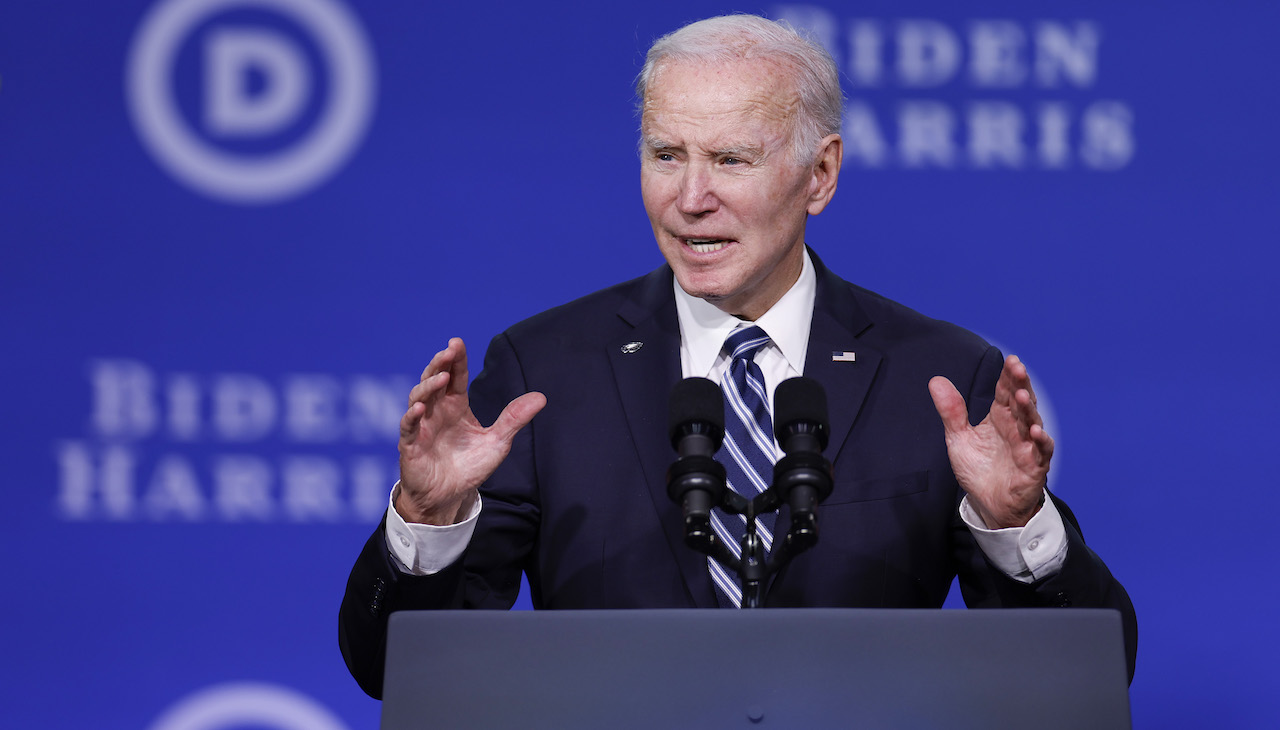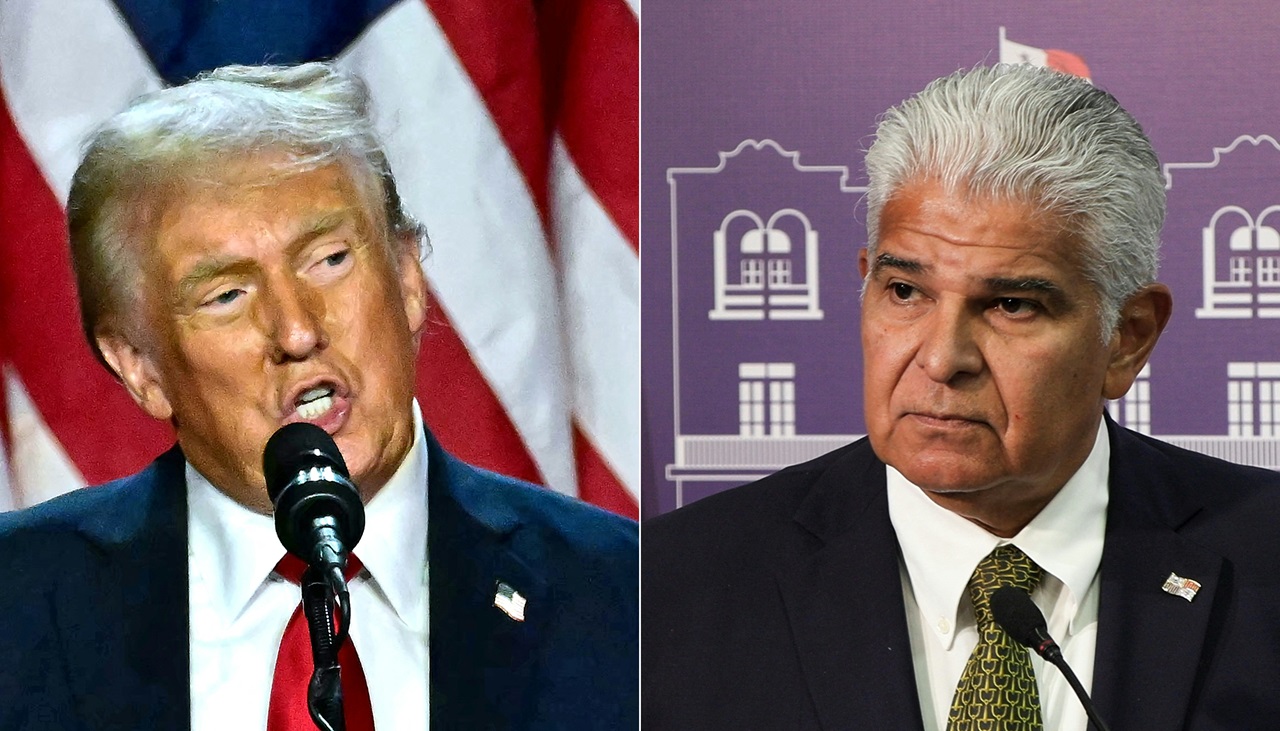
NPR to feature bilingual broadcast of the State of the Union address
Next Tuesday, NPR will offer a SOTU analysis in Spanish and English — a first for its listeners.
NPR is slated to broadcast President Joe Biden’s State of the Union on Tuesday, Jan. 7, in a segment that will spotlight Spanish and English-language analysis for the first time during a presidential address and feature bilingual reporters from different newsrooms.
The segment, conversational in nature, will host a robust slate of bilingual correspondents to lead the analysis — including Sergio Martínez-Beltrán, a Puerto Rican political correspondent based in Austin, NPR’s Morning Edition co-host A Martínez, international correspondent Eyder Peralta, White House correspondent Franco Ordoñez, and congressional correspondent Claudia Grisales.
It will be the first time, Martínez said, that an NPR SOTU broadcast is discussed in the two languages.
“The State of the Union by Joe Biden and the rebuttal of [the Republican Party] will both be interpreted in Spanish, in real-time,” Martínez explained.
“So as you hear the president say a word or two, the interpreter will jump in and interpret what they're saying. So both are going to be done back to back as they happen,” he added.
Martínez originally thought of leveraging bilingual reporting when he was stationed in Tijuana last year covering the border, he said, “and that's just me as an NPR host dreaming big, right?”
Knowing it would be a significant logistical undertaking, Martínez shelved the idea of bilingual coverage until Erika Aguilar, who is Morning’s Edition’s Executive Producer, pitched a dual-language approach for SOTU coverage, which up until this point, had been uncharted territory for the station.
Although NPR streams Spanish-language transmissions — such as NPR Oye and Radio Ambulante — it is rare for a mainstream service to highlight bilingual coverage across media streaming platforms.
“It's a perfect way to dip our toe into this to see how it goes. Hopefully, it goes well, and it can maybe open the door for more things and more regular things in the future (...), so it won't be every once in a while. It'll be something that people can count on hearing from time to time.”
Martínez-Beltrán is one of the Spanish-speaking reporters recruited for this project. He's a reporter assigned to border coverage in Austin and someone who Martínez described as a “perfect choice.”
Beyond doing a good show, Martínez-Beltrán is focused on some of the more practical aspects as he gears up for high-profile, full-fledged coverage via public radio.
“I'm working on speaking a little slower in Spanish because, as you know, as a Puerto Rican, we're speaking like we're singing,” Martínez-Beltrán told AL DÍA.
From a reporting standpoint, he’ll look at national immigration, LGBTQIA+ issues, culture wars, and the political optics as a whole, “which is so important for both the Republican and Democratic parties.”
Biden is sure to tout his successes halfway through his administration.
With a deeply divided Congress in the post-Trump years, Democrats sent bills to address infrastructure, green energy, inflation, and a federal marriage equality bill to the White House with a majority in the House and a tie-breaking vote in the Senate.
RELATED CONTENT
Biden also grapples with sound immigration reform. There is no set agenda for immigration, and both parties on Capitol Hill disagree on the approach to address the border.
Throughout his two-year term, he’s received pushback from Republicans across both chambers, even though he scored legislative successes for his party. Martínez-Beltrán aims to contextualize that discussion through his own reporting in Texas and how the state navigates immigration.
As Biden enters the 118th Congress, though, the administration will navigate the Republican agenda, more notably, some of the investigations the Freedom Caucus hopes to advance, having secured control of powerful committees.
“I'm expecting a lot of, you know, the President talking about his successes, what he's been able to accomplish, and also what he wants to accomplish this time around with a divided Congress, which is more complicated than what he's had in the past,” Martínez-Beltrán noted.
“We're also going to be able to fact-check him as we do the analysis.”
But what Martínez-Beltrán is most looking forward to is the exchange of thoughts in English and Spanish, a detail that represents how Latino households in the U.S. communicate. According to 2022 census data, Spanish as a second language is common and is 12 times more likely to be spoken other than English, in relation to other languages.
NPR’s initiative may serve Latino listeners well, especially considering the number of Spanish-speaking communities who said they’d felt alienated from the political campaign cycle during the 2022 midterms.
“We want this to sound like a lot of our audience sounds, which is that we go back and forth and we navigate these two languages and these two cultures on our every day,” Martínez-Beltrán said, responding to whether he was anxious about switching back and forth with political terminology.
“And so you know, I don't have to necessarily worry too much about sounding perfect in Spanish because I can revert to English because that's what we do every day here, right?”
The NPR bilingual coverage of SOTU is set to air from 9:00 p.m. - 11:30 p.m. (ET) on NPR member stations across the country (www.npr.org/stations), and a live stream will be available at NPR.org.











LEAVE A COMMENT:
Join the discussion! Leave a comment.